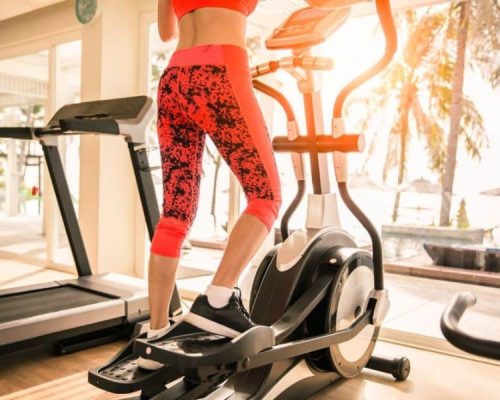Importance of Sleep for Mental Health
Impact of Sleep on Your Health
Getting your beauty sleep isn’t just a catchy phrase—it’s a full-on necessity for your mind and body to function at their best. For kids, snagging those sweet 9 to 12 hours of z’s can boost everything from focus to feelings, making school and playtime a lot smoother (Mayo Clinic). When adults miss the mark on seven hours snoozing, it hits like a ton of bricks. We’re talking extra pounds, high sugar levels, and even heart scares (Mayo Clinic).
Experts have a few words on how dozing affects your noggin:
- Brain Boost: Catching enough z’s can sharpen your thinking, helping you tackle everyday challenges like a pro.
- Mood Magic: Feeling edgy or anxious? The right amount of sleep can keep those unwelcome emotions at bay.
- Memory Keeper: Snooze time is prime time for locking in memories, making it easier to hang onto what you learn and experience.
| Age Group | Recommended Hours of Sleep | Benefits |
|---|---|---|
| Children | 9-12 hours | Better learning and behavior |
| Teenagers | 8-10 hours | Enhanced focus and mood lift |
| Adults | 7-9 hours | Boosted brain power and lower disease risk |
Effects of Poor Sleep
Skimping on sleep can mess with your mind and mood big time. Some studies paint a bleak picture: constant tiredness, unpredictable moods, and even health woes you don’t want. Here’s the scoop:
- Stress Spike: Skimping on sleep? Watch out for those pesky stress hormones jumping up and messing with your chill.
- Mind Matters: Always tired? You might find depression and anxiety knocking at your door (Healthline).
- Brain Freeze: Less sleep equals foggy brain—concentration and productivity take a major hit.
| Consequence | Description |
|---|---|
| Weight Gain | Hormones go haywire, sparking more hunger pangs |
| Hypertension | Blood pressure spikes amid stress roller coasters |
| Depression Risk | Strong links to lack of precious sleep hours |
Craving a better night’s rest? Dive into our improving sleep quality tips and tricks.
Good sleep is the secret sauce to ditch the bad effects of tossing and turning. The way you spend your day matters as much as your bedtime rituals. For ideas on creating golden sleep routines, check out our sleep hygiene tips.
Realizing why sleep matters is pure gold for making smarter health choices. Whether it’s sticking to a sleep routine or mastering a new way to unwind, there are endless paths to a peaceful slumber. Don’t miss our guides on ways to relax before bed and meditation for better sleep.
Establishing Healthy Sleep Habits
Getting your zzz’s in check can do wonders for your mind and body. This bit dives into how to nail a solid sleep schedule, whip up a chill bedtime routine, and set up your sleep space just right.
Consistent Sleep Schedule
Sticking to a routine bedtime and wake-up call is like giving your body its very own sleep clock (Healthline). This regularity can make hitting the hay and jumping out of bed a breeze while keeping drowsiness at bay during the day. Here’s your game plan:
- Crash at the same hour every night—even on those tempting weekends.
- Rise and shine at the same hour each morning.
- Skip those indulgent naps, especially before the sun sets.
| Day | Bedtime | Wake-up Time |
|---|---|---|
| Monday | 10:00 PM | 6:00 AM |
| Tuesday | 10:00 PM | 6:00 AM |
| Wednesday | 10:00 PM | 6:00 AM |
| Thursday | 10:00 PM | 6:00 AM |
| Friday | 10:00 PM | 6:00 AM |
| Saturday | 10:00 PM | 6:00 AM |
| Sunday | 10:00 PM | 6:00 AM |
Creating a Relaxing Bedtime Routine
Winding down before bed gives your body the hint it needs to chill out and get ready to snooze. Things like diving into a book, stretching like a cat, or doing some breathing exercises can up your sleep game (Sleep Foundation). Try these out:
- Nix the screens: Keep your distance from gadgets like phones and computers for an hour pre-bedtime. That blue light messes with melatonin, making sleep a tough nut to crack (Sleep Foundation).
- Chill exercises: Go for deep breathing, chill-out meditation, or muscle relaxation. For more ways to kick back, check out our pre-sleep relaxers.
- Quiet hobbies: Dive into a book, let some calm tunes wash over you, or soak in a warm tub.
Optimal Sleep Environment
Creating a comfy sleep environment can seriously tweak how well you’re catching those Z’s. Setting up a snug sleeping space with the right vibes can make drifting off feel effortless. Take note, folks:
- Room temp: Keep your sleeping quarters between 60 and 67°F (15.6 and 19.4°C) (Healthline).
- Bedding fit for dreams: Splash out on a comfy mattress, pillows, and sheets.
- Bed rules: Use the bed just for snoozing and romancing to keep it a sleep-friendly zone.
| Factor | Ideal Range |
|---|---|
| Room Temperature | 60 – 67°F (15.6 – 19.4°C) |
| Noise Levels | Quiet or with white noise |
| Lighting | Dark or dimy, just like a cave |
Nailing these sleep habits can completely change how you nod off and stay snug. For even more pointers on getting primo sleep, check out our piece on better sleep tips.
Incorporating Exercise for Better Sleep
Getting your body moving each day can work wonders for your nighttime snooze. Let’s check out how breaking a sweat can help you tuck in for the night and what kid of workouts will send you to dreamland.
Exercise and Sleep Quality
Squeezing in even half an hour of exercise can have a big impact on how well you sleep at night. And it’s not just any exercise—get those legs moving outside when you can, under the open sky, for even bigger benefits.
How are we talking instant results here? Indeed, breaking a sweat can mean a better night’s sleep almost immediately. Nice, right? Researchers say it helps you grab more of that precious deep sleep, and helps reset your brain and body, making them feel brand new.
Those who lace up their sneakers for at least 30 minutes daily doze off 15 minutes quicker than couch potatoes. Physical activities can work like sleeping pills, minus the meds, cutting down tossing and turning. Here’s the scoop:
| Benefit | Impact |
|---|---|
| Sleep Longer | 15 minutes extra a night |
| Sleep Better | More time in deep sleep |
| Wakey Wakey, Fewer Bays | Help kick insomnia to the curb |
Best Types of Exercise for Sleep
Not all workouts are created equal in the sleep game. Here’s the short-list of what might turbo-charge your snooze button:
Aerobic Exercise
Swimming, biking, jogging—these fellas get your heart racing, and in return, help your mind wind down. Endorphins take up the stress slack and boost your spirits, sending you off to a night of restful sleep.
Strength Training
Lifting weights or stretching those resistance bands not only builds muscles—it can pump up your metabolism and overall health. Add these to your skills, and you’ll sleep like a log.
Yoga and Stretching
Yoga and stretch routines not only keep your body limber but also melt away tension, imperative for peaceful nights. They calm the chatterbox in your brain, inviting slumber with open arms. Research says these are bonafide sleep enhancers.
Get creative with your workouts—make sure they’re something you love and can be consistent about. Stick with what suits your groove so bedtime arrives with less struggle. Swing by our article on ways to relax before bed for winding down ideas, and check our sleep hygiene tips, and improving sleep quality for more rest goodness.
Managing Caffeine for a Good Night’s Sleep
We all love a good cup of joe in the morning to kickstart the day. But ever thought that your afternoon coffee might be sabotaging your sleep? Here’s the scoop on why reining in your caffeine consumption can be a game changer for catching those Zs.
How Caffeine Messes with Your Sleep
Caffeine can be like that unwanted guest who overstays their welcome—especially when you’re trying to get some shut-eye. The caffeine buzz is a dream-killer for about 88% of caffeine consumers in the afternoon (Sleep Foundation). It messes with your internal clock and can make it tough to drift off, particularly if you’re sipping copiously or too late in the day.
The real kicker? Caffeine’s got stamina. It can linger in your body, thanks to its long half-life of 2 to 12 hours, meaning yesterday’s jolt might be messing with tonight’s snooze. The buzz keeps your mind wired, making the transition to bedtime a mission impossible.
Signs You’ve Overdone the Caffeine
- Can’t fall or stay asleep
- Feeling queasy
- Pounding headaches
- Jittery like a squirrel on energy drinks
- So sleepy during the day, even more caffeine doesn’t help
If these are hitting close to home, it might be time to dial back those coffee runs. People with chronic insomnia should definitely consider kicking caffeine to the curb for better sleep.
How Much Caffeine is Too Much?
To up your sleep game, try avoiding caffeine at least eight hours before you plan to hit the hay (Sleep Foundation). It gives your body a chance to mellow out and lets you snooze without interruptions.
Here’s a cheat sheet for caffeine cut-off times:
| Caffeine Source | Last Call Time |
|---|---|
| Coffee (8 oz) | 2 PM |
| Tea (8 oz) | 3 PM |
| Soda (12 oz) | 4 PM |
| Energy Drinks (8 oz) | 3 PM |
| Chocolate (1 oz) | 6 PM |
If your sleep is still iffy or you’ve got a low tolerance to caffeine, consider scaling back even more or cut it out entirely. Everyone’s got their own caffeine sweet spot, so listen to what your body is telling you.
Your path to blissful sleep doesn’t stop at ditching caffeine. Try good sleep habits, get zen with meditation for better sleep, or discover how to unwind before bed.
Caffeine control is just one piece of the puzzle in nailing that perfect slumber. For the full picture, check out our other guides on better sleep practices and why good sleep is your best friend.
Addressing Screen Time and Sleep
Figuring out how screens affect your snooze and crafting a bedtime routine that ditches the tech is a big win for getting better zzz’s.
Impact of Screen Time on Sleep
Too much screen time, especially when you’re about to hit the hay, can seriously mess with your shut-eye. Did you know that most teens—and even 30% of younger kids—have at least one gadget in their bedrooms? (NCBI). Here’s how screens can cause bedtime headaches:
- Cutting into Sleep Time: More time spent staring at screens usually means less time sleeping.
- Gets Your Brain Buzzing: Engaging content can make it tough for your mind to chill out.
- Blue Light Blues: The blue light from screens tricks your brain into staying awake by blocking melatonin.
- Dialing Up Alertness: Interactive stuff on screens can keep you perked up, putting off sleep.
Too much screen time isn’t just about losing sleep. It’s also tied to other downers like child obesity, mental health struggles, and school troubles (NCBI). And if you’re addicted to the internet or gaming, you’re probably getting lousy sleep, with online RPGs being the worst offenders.
Let’s look at a table to see how screen time clashes with catching zz’s:
| Factor | Impact on Sleep |
|---|---|
| Sleep Time Reduction | Snooze time cuts short |
| Brain Stimulus | Tough to calm down |
| Blue Light Shenanigans | Melatonin gets blocked |
| Perky Alertness | Delayed dozing off |
Want more info on how bad sleep messes with your head? Peek at our piece about mental health and sleep.
Creating a Tech-Free Bedtime Routine
Ditching screens before bed can work wonders for your snooze. Here’s how you can pull off a screen-free bedtime routine:
-
Device Bedtime Ban: Power off your tech at least an hour before you hit the sack. Steer clear of screens for entertainment or work during this downtime.
-
Swap Screens for Soothing Stuff: Dive into relaxing activities like reading, tuning in to soft tunes, or getting your zen on with meditation for sleep.
-
Kick Devices Out of Sleep Space: No gadgets allowed in your sleeping space—say goodbye to phones, tablets, and the like.
-
Stick to a Sleepy-Time Schedule: A consistent routine tells your body it’s snooze o’clock. Try things like warm baths, easy stretches, or jotting down thoughts in a journal.
-
Get Moving: Daytime exercise helps regulate your sleep rhythms and cuts down on the urge to be glued to a screen in the evening. Check out our tips on sleep-boosting exercises.
These changes can set up a chill sleep environment. For more ways to wind down and hit the hay right, check out our guides on pre-bedtime relaxation and solid sleep hygiene.
Cutting back on screen time and making tech-free bedtime a habit can work half-magic in upping your sleep quality and boosting your mental health.
Seeking Professional Help for Sleep Issues
Deciding when it’s time to call in the pros for your sleep struggles can be a game-changer for boosting your sleep habits and feeling awesome day-to-day. Spotting sleep disorder symptoms and getting a doc’s perspective might just transform those tossing-and-turning nights into sweet, easy Z’s.
Recognizing Signs of Sleep Disorders
Sleep hiccups pop up more often than you’d guess. Studies show 19.1% to 28.4% of folks deal with insomnia. Noticing the warning signs could be your first move to catching some quality shut-eye. Here’s the scoop on what might mean you’re battling a sleep disorder:
- Tossing and turning: If it takes you half an hour or more to drift off on the regular.
- Constantly waking up: Nights full of wake-ups, making it a fight to snooze again.
- Running on empty: Feeling wiped out during the day even after enough hours in bed.
- The snore show: Loud snoring or those breath-pausing moments hint at sleep apnea.
- Jumpy legs: That need to shuffle your legs when you’re chilling, mostly at night.
- Mood swings: Crankiness, sadness, or nerves flaring up from sleep that’s just not cutting it.
Jumping on these symptoms fast by visiting a pro can do wonders for your mental clarity and life vibes.
Consulting with Healthcare Providers
If you’ve picked up on sleep disorder signals, it’s doctor time. Here’s what to expect and prep for:
- The Doc’s Download: They’ll dive into your medical past and puzzle out anything else that’s tripping up your sleep.
- Sleep Log: Jot down a sleep log for a few weeks pre-visit. Note down your doze-off times, wake-ups, disruptions, and how alive you feel each morning.
- Sleep Exam: A sleep study might be in the cards. It tracks your dream cycles, breathing flow, and the like to point out sneaky disorders like sleep apnea.
- Game Plan: Based on what’s up, treatments might range from tweaking your lifestyle to counseling like cognitive behavioral therapy for insomnia (CBT-I), or prescriptions. Your doc will cook up a personalized strategy.
| Symptom | What Might Be Up | Next Move |
|---|---|---|
| Trouble nodding off | Insomnia | Chat with a doc about CBT-I or meds |
| Midnight awakenings | Sleep Apnea | Think about a sleep study |
| Zombie-like during the day | Narcolepsy | Explore stimulant meds and habit changes with your doc |
| Legs won’t stop moving at night | Restless Legs Syndrome | Look into diet tweaks or lifestyle fixes |
For more juicy tips, peep our pieces on better sleep secrets and sleep’s magical perks.
If sleepiness hangs around like an annoying houseguest, don’t wait. Nabbing professional advice early can seriously up your snooze game and health vibes like never before. Want more advice on winding down for the night or diving into calming pre-sleep rituals and meditation magic? Check out our recommendations.










